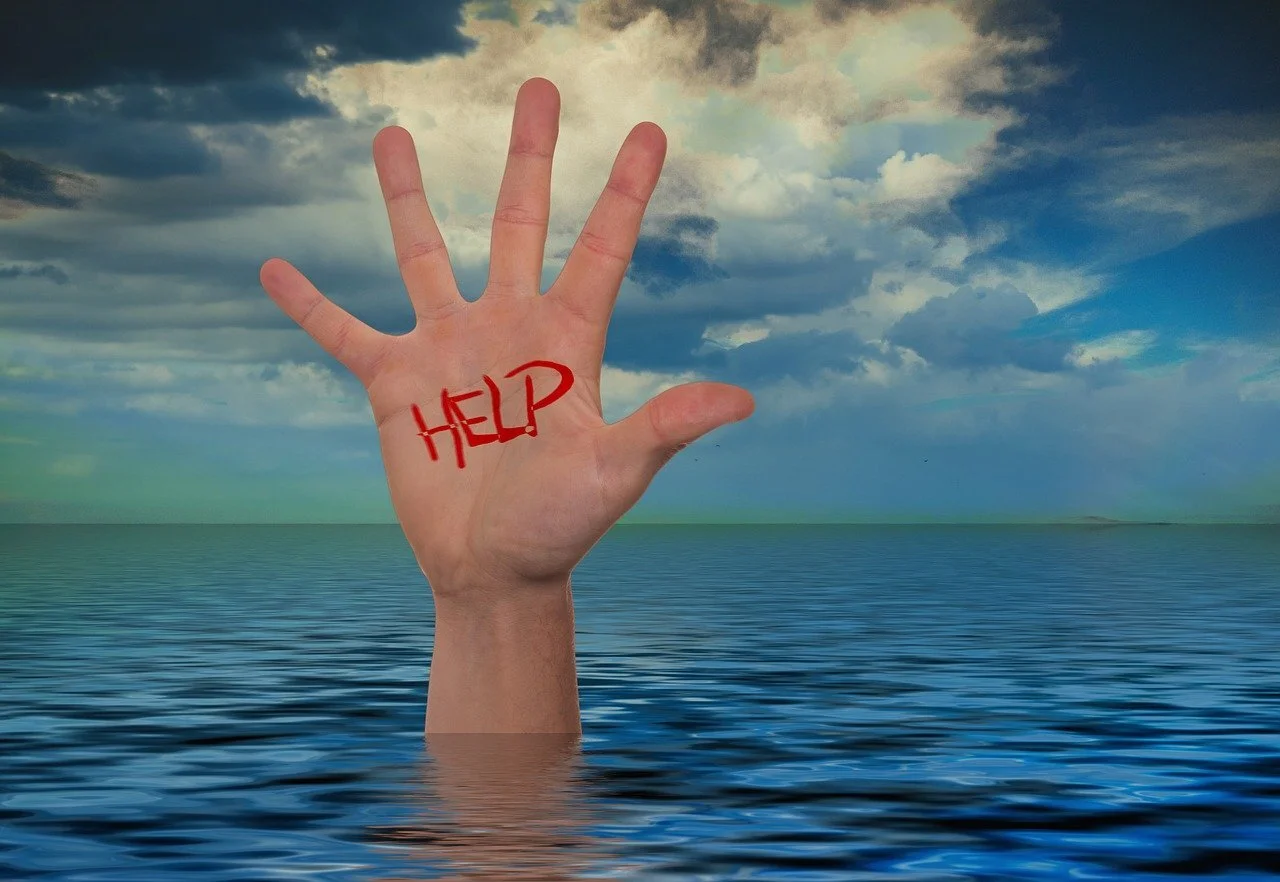BPD Awareness - How does it really feel to have EUPD / BPD?
May 1st marked the start of not only Mental Health Awareness month but also BPD Awareness month. BPD is the alternative, older name for EUPD, most usually used in America. It stands for Borderline Personality Disorder, not because the condition is on the edge of being a personality disorder but because when it was first defined, the condition was named after the fact that it encompassed both neurotic and psychotic symptoms. Sufferers were thought to be on the ‘borderline’ between these two areas. Personally (although it has its own problems to be explored separately) I prefer the newer, European name of Emotionally Unstable Personality Disorder because it gives a better idea of what the condition is and EUPD is an acronym that stands apart from others whereas BPD is often mistaken for or confused with Bipolar Disorder - an entirely separate and different mental illness.
I want to talk about what it is like to experience life with EUPD. Of course, there are a whole set of diagnostic criteria that must be met for someone to fit the label but they don’t tell you what it really feels like to have it. In fact, the feelings begin with the label itself. It is a common misconception amongst those who know a little about EUPD that all those who have it behave in a particular, largely negative way towards others. As a result, a lot of stigma surrounds people, like me, who have the condition. We are often deemed ‘manipulative’, ‘attention seeking’ and ‘melodramatic’ due to the rapid cycling of our emotions and the black and white thinking that can dominate our thoughts and feelings towards others. Whilst I can say that my current mental health team hasn’t and doesn’t treat me with these prejudices, I have encountered far too many professionals and members of the public over the years who have and do. Most notably, these have been workers in A&E. More than once, I have presented there with a purely physical problem that has been unrelated to mental health in any way and been met with a perfectly appropriate demeanour until my mental health diagnosis was mentioned. At this stage, my treatment became dramatically different; I was treated like a time-waster, my concerns for my health were belittled and I was prematurely discharged without appropriate treatment being given at all. Simply because the dreaded label had become apparent to them. It felt as if everything I said suddenly became irrelevant and invalid - not just like I didn’t know my own mind but also that I was trying to deceive or coerce the nurses and doctors into giving me time and treatment that I didn’t need. I felt like I was being called a liar and treated like a criminal.
“I was treated like a time-waster, my concerns for my mental health were belittled and I was prematurely discharged without appropriate treatment being given at all.”
On one occasion, this treatment in A&E and later on a physical health ward where I had been admitted due to urology problems, led me to leave the hospital in a suicidal state. As mentioned above, those with EUPD experience very rapid cycling of their moods and emotions. This makes every day a hellish rollercoaster ride. When I wake up in the morning I genuinely do not know how I am going to feel during the course of the day. Whilst I may wake up in a positive mood, within minutes I could be feeling anger, sadness or guilt. Then perhaps an hour later the emotion will switch again, then again and again repeatedly until I eventually fall asleep exhausted at the end of the day, knowing I have to face it all again the following morning. However, the emotions are not only chaotic. In people with EUPD, feelings are known to be experienced far more intensely than in those without the condition. For this reason, anger to me isn’t very often mere irritation but more frequently full on rage. Sadness becomes desperation or despair and invalidation becomes outright abandonment. Not only does that mean things are exhausting on another front but it can also lead to serious risks. When I feel unheard or invalidated my self-esteem drops off the scale and I can have an urge to harm myself because I am useless or unimportant or any number of other superlative negative feelings. This may manifest as self-injury in some form but in particularly severe instances it can lead to suicidal ideation or even action. As such, when I was treated badly in the hospital that day, the sheer abandonment I felt by the people who were meant to care for me was overwhelming. I felt worthless and honestly like life wasn’t worth living. To the average person that may sound like a dramatic (perhaps even melodramatic) response but to me, it was perfectly proportionate. I wasn’t attention seeking or being manipulative by way of getting upset, I genuinely felt in utter inner turmoil and desperately wanted that to end.
Somehow, having EUPD makes me feel like I am constantly on the back foot, always having to defend my actions and reactions to stimuli. People just find it difficult to understand how such severe thought processes can result from instances which happen to everyone in everyday life. It is not helped by the fact that I am generally seen as a mature, sensible and intelligent individual. I have been told that I have “great insight” into my condition countless times but to me, this just makes it worse. I can see and understand that my reactions and the intensity of my emotions are often irrational but I can’t stop them from swamping me. Understanding something doesn’t compensate for, or take away the pain of feeling it nonetheless. In fact, if I had to sum up EUPD / BPD in one word, it would be; pain. It hurts more or less all the time. I find I am either hurting as a direct result of feeling a strong negative emotion in response to something or else I am in pain thinking about how I shouldn’t have been so silly or said that or done the other. My inner monologue (the voice inside my head - the one we all have) is almost entirely negative and the intrusive thoughts it produces are cruel and punishing. Nothing is ever good enough, least of all me. It is perhaps unsurprising then that 10% of people diagnosed with this personality disorder do end up taking their own lives.
I have mentioned black and white thinking above as another trait of the condition. This to me, means that I generally see things and people as either all good or all bad. Someone could be my best friend one minute and then, through one misdemeanour such as turning up to meet me half an hour late, suddenly become someone who can’t be trusted with anything and disowned by me. This is known in the trade as ‘splitting’. I know I do this and I dislike it intensely. I don’t enjoy thinking ill of people but it is a real defence mechanism, a way to keep myself from further harm down the line. In the example of turning up late, the friend has shown to me that they can’t be trusted to arrive on time - from this (yes, irrationally) I immediately jump to ‘well she can’t be trusted at all’ alongside ‘I can’t trust that she actually likes me now, in fact, she hates me’ and ‘if she hates me I really can’t trust her so I’d better get rid of her before she abandons me’. All of this happens within a second in my head. Knowing that I can’t bear the feeling of being abandoned or let down in any way, especially when it comes to trust, I often push people away before they can do the same to me. I am lucky in that I have a few good friends and family members who can put up with my blowing hot and cold and we have ridden through this but it does all make entering into and sustaining relationships of any kind incredibly difficult.
“Above all, this condition has made me strong.”
Finally though, I want to talk about the positives of having EUPD because there are some! The rollercoaster of emotions and almost constant emotional pain are very hard to bear but when things are good, the intensity of that feeling is just as strong. I can feel elated when things work out well and experience real joy from interactions with people that others might take for granted. Also, my sensitivity to emotions makes me empathetic and sensitive towards others. I am fiercely loyal and trustworthy because I know how it feels to be let down by someone and I value true relationships dearly. Above all though, this condition has made me strong. Over the years I have learnt that I can survive the intense turmoil that plagues my mind, I have fought urges and fought back from set backs time and time again. To function in society, someone with EUPD has to constantly challenge themselves and their thinking. This is a big ask but it also comes with the significant reward of inner strength that people without the condition may never attain.





